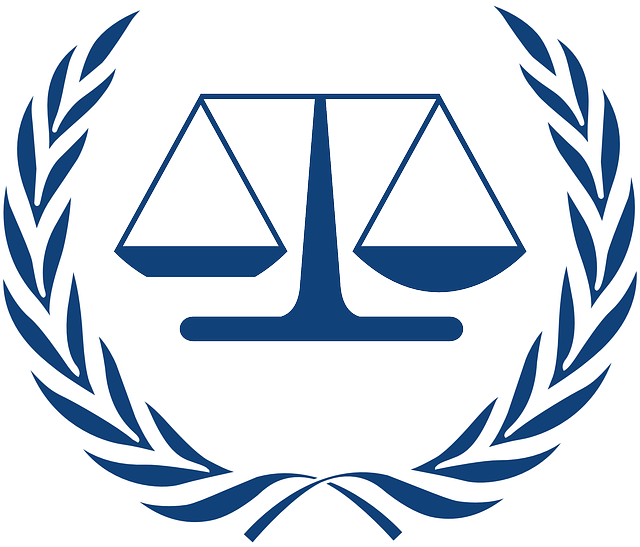RF Regulatory Agency investigations require strategic legal compliance. Promptly addressing deviations can mitigate penalties and enhance reputation. Understanding Legal Grounds for Criminal Appeal, as outlined in national laws, is crucial for appealing decisions. Specialized legal counsel assists in navigating complex regulatory landscapes and ensuring fair business representation. In high-stakes cases, a seasoned attorney with an RF case management track record is vital to secure favorable outcomes by presenting compelling evidence and legal precedents challenging agency findings.
RF Regulatory Agency investigations are crucial for ensuring compliance with radio frequency (RF) standards. Understanding the legal framework behind these inquiries is essential, especially when considering appeals. This article delves into the intricacies of RF investigations, exploring legal grounds for criminal appeal, post-investigation processes, and relevant regulations. By comprehending these aspects, stakeholders can effectively navigate the complexities of RF compliance and potential legal challenges, including the assertion of Legal Grounds for Criminal Appeal.
- Understanding RF Regulatory Agency Investigations
- Legal Framework for Appealing RF Investigations
- Grounds for Criminal Appeal in RF Cases
- Navigating Post-Investigation Appeals Process
Understanding RF Regulatory Agency Investigations
RF Regulatory Agency Investigations are a crucial aspect of ensuring compliance with radio frequency (RF) standards and regulations. These investigations delve into potential violations, from manufacturing defects to unauthorized spectrum usage. Understanding the legal grounds for such inquiries is paramount for industry players, especially when facing possible criminal appeals. The process involves meticulous examination of equipment, documentation, and operational procedures to ascertain whether they adhere to specified RF safety and emission norms.
For his clients, navigating these investigations requires a strategic approach, leveraging an unprecedented track record of achieving extraordinary results. Legal teams must demonstrate that their clients have met all regulatory requirements, addressing any deviations promptly and transparently. This proactive stance not only mitigates potential penalties but also showcases a commitment to ethical business practices, thereby enhancing the company’s reputation in a highly competitive market.
Legal Framework for Appealing RF Investigations
When facing an RF Regulatory Agency investigation, understanding the legal framework for appealing decisions is paramount. While the specifics may vary across jurisdictions, many countries have established processes allowing individuals or businesses to challenge findings they deem unjust or incorrect. The first step involves identifying legal grounds for criminal appeal, such as procedural errors, insufficient evidence, or violations of due process rights. These grounds are typically detailed in national laws and regulations governing administrative proceedings.
In appealing an RF investigation, it’s crucial to navigate a series of legal steps carefully. This often includes filing a formal petition with the relevant authority, providing supporting documentation, and presenting arguments before a review board or court. Successful appeals not only protect the rights of the accused but also ensure that regulatory agencies uphold their duties impartially. Engaging legal counsel specializing in RF regulations can significantly aid in this process, especially when navigating complex philanthropic and political communities across the country and ensuring the respective business interests are represented fairly.
Grounds for Criminal Appeal in RF Cases
In RF regulatory agency investigations, understanding the legal grounds for criminal appeal is paramount, especially in high-stakes cases that span across the country. The unique nature of radio frequency (RF) technologies and their widespread use necessitate a robust framework to address disputes and ensure compliance. Key legal grounds for criminal appeals in these cases often revolve around interpretation of laws, regulatory guidelines, and evidence presentation—all crucial elements that can significantly sway the outcome.
An unprecedented track record in RF case management further underscores the importance of meticulous appeal processes. Given the intricate technical aspects involved, successful appeals require a deep understanding of not only legal principles but also the specific challenges posed by RF technologies. This expertise is vital to navigating complex regulatory landscapes and securing favorable outcomes, especially when dealing with cutting-edge cases that set precedents for future RF regulatory agency investigations across the country.
Navigating Post-Investigation Appeals Process
Navigating the post-investigation appeals process can be complex, especially when high-stakes cases are at play. RF Regulatory Agency decisions can significantly impact businesses and individuals alike, making it crucial to understand the legal grounds for criminal appeal. With an unprecedented track record in successfully representing his clients, a seasoned attorney is essential to guide through this labyrinthine process. They will help decipher the intricacies of the law, ensuring every potential argument is made on behalf of the client.
The appeals process demands meticulous attention to detail and a deep understanding of regulatory frameworks. An experienced advocate can challenge the agency’s findings by presenting compelling evidence and legal precedents that may have been overlooked during the initial investigation. This strategic approach not only increases the chances of a favorable outcome but also ensures fairness in high-pressure situations where every decision matters.
RF Regulatory Agency investigations are intricate processes that demand a thorough understanding of both the legal framework and available appeals mechanisms. By recognizing the specific Legal Grounds for Criminal Appeal in RF cases, individuals and organizations can navigate the post-investigation appeals process effectively. Whether challenging administrative or criminal findings, a strategic approach backed by solid legal knowledge is key to achieving favorable outcomes and ensuring compliance with RF regulations.






